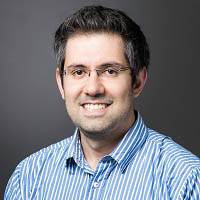In This Story

A new study funded by the National Science Foundation (NSF) will explore the intricacies and prevalence of the trafficking of human kidneys by illicit networks around the world, with the goal of disrupting the flow of the trafficking.
The study, D-ISN: Evolution of Global Illicit Kidney Trade Networks: Identification, Reconstruction, and Disruption, will be headed by veteran kidney researcher Naoru Koizumi, professor of public policy and associate dean of research and grants in the Schar School of Policy and Government at George Mason University.
Koizumi will be assisted by Hadi El-Amine, an assistant professor in Mason’s Systems Engineering and Operations Research Department, who specializes in health care and public policy.
The award is for $999,941.
“Kidney trafficking is significantly understudied compared to other types of trafficking networks, despite the rising concern about this type of crime in recent years,” Koizumi said. “The project aims to develop a general framework for modeling the evolution of transnational kidney trade networks.”

Understanding those networks, she added, enables the exploration of effective disruption strategies.
The project uses a multidisciplinary set of methods that includes novel estimation procedures based on inverse optimization, dynamic link prediction models for handling unobserved activity in the networks, and stochastic simulation models to address the numerous sources of uncertainty and to allow the testing of potential intervention strategies for disruption of future network evolution.
These methods will be informed by data obtained from various sources including open and dark web and online news articles across countries, as well as world statistics that are publicly available from international organizations.
The analytical framework that integrates these methods will be used to:
- Predict the evolution of future transnational kidney tracking networks.
- Identify common patterns and mechanisms of actions of such networks.
- Investigate optimal strategies to disrupt the growth of such networks.
The collaboration with organ trafficking and “transplant tourism” experts will allow the project team to fine-tune the research outputs for real-world implementation of recommended strategies.
